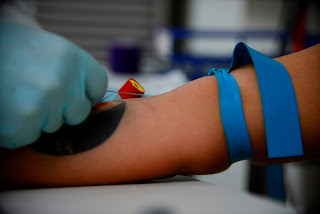Child caring
Dealing with a constantly sick kid is one of the most depleting and troublesome assignments a parent can confront. Past taking care of physical difficulties and therapeutic needs, you'll need to manage your tyke's enthusiastic needs and the effect that a delayed disease can have on the whole family.
Fortunately, this intense exercise in careful control doesn't need to be done alone: bolster gatherings, social specialists, and family companions regularly can loan some assistance.
Disclosing Long-Term Illness to a Child
Genuine correspondence is fundamental to helping a kid acclimate to a genuine ailment. It's significant for a kid to realize that the person in question is debilitated and will get loads of consideration. The clinic, tests, and drug may feel alarming, however they're a piece of helping your tyke feel much improved.
As you clarify the ailment and its treatment, offer clear and genuine responses to all inquiries in a manner your kid can get it. It's additionally imperative to precisely clarify and set up your tyke for medicines — and any conceivable uneasiness that may go with alongside those medications.
Abstain from saying "This won't hurt" if the technique is probably going to be agonizing. Rather, be straightforward if a technique may cause some distress, torment, weight, or stinging. In any case, at that point promise your tyke that it will be transitory and that you'll be there to offer help.
Numerous clinics give guardians the choice to address their kid about a long haul finding alone, or with the specialist or the whole therapeutic group (specialists, social laborers, medical caretakers, and so on.) present. Your PCP or other restorative expert likely can offer guidance on the best way to converse with your youngster about the disease.
Handling Tough Emotions
Your kid will have numerous emotions about the progressions influencing their body, and ought to be urged and offered chances to express those sentiments and any worries and fears. Ask what your kid is encountering and tune in to the appropriate responses before raising your very own sentiments or clarifications.
This sort of correspondence doesn't generally need to be verbal. Music, drawing, or composing can frequently help children express their feelings and getaway through their very own dreamland plan.
Children additionally may require updates that they're not in charge of the ailment. It's regular for them to expect that they expedited their ailment by something they thought, stated, or did. Promise your kid this isn't the situation, and clarify in basic terms what is happening. (You likewise might need to console your different children that nothing they said or did caused their kin's disease.)
For some inquiries, there won't be simple answers. Also, you can't generally guarantee that everything will be fine. In any case, you can enable your tyke to feel better by tuning in, saying it's OK and totally justifiable to have those emotions, and clarifying that you and your family will make the person in question as agreeable as could be expected under the circumstances.
In the event that a kid asks "why me?" it's OK to offer a legitimate "I don't have the foggiest idea." Explain that despite the fact that nobody knows why the ailment happened, the specialists do have medications for it (if that is the situation). In the event that your kid says "it's not reasonable that I'm wiped out," recognize that your kid is correct. It's significant for children to realize it's OK to feel irate about the disease.
Your tyke may ask "am I going to bite the dust?" How you answer will depend on your tyke's restorative circumstance, yet additionally your youngster's age and development level. It's essential to know, if conceivable, what explicit feelings of trepidation or concerns your kid has and to address them explicitly.
In the event that it is consoling to your youngster, you may allude to your religious, otherworldly, and social convictions about death. You should avoid code words for death, for example, "resting." Saying that may make kids dread hitting the hay around evening time.
Despite their age, it's significant for children to realize that there are individuals who adore them and will be there for them, and that they'll be kept agreeable.
Much the same as any grown-up, a tyke will need time to conform to the finding and the physical changes and is probably going to feel pitiful, discouraged, furious, apprehensive, or even to deny that they are wiped out. Consider getting proficient guiding on the off chance that you see signs that these sentiments are meddling with day by day work, or your tyke appears to be pulled back, discouraged, and indicates radical changes in eating and dozing propensities inconsequential to the physical sickness.
Conduct Issues
Children with ceaseless ailments surely require extra "careful attention", yet in addition need the schedules of youth. The premier — and maybe trickiest — task for stressed guardians is to regard a debilitated tyke as typically as would be prudent.
Regardless of the conditions, this implies setting limits on unsatisfactory conduct, adhering to typical schedules, and maintaining a strategic distance from overindulgence. This may appear to be unthinkable, yet ruining or pampering can just make it harder for a youngster to come back to day by day exercises. At the point when your tyke leaves the emergency clinic for home, regularity is the objective.
Fortunately, this intense exercise in careful control doesn't need to be done alone: bolster gatherings, social specialists, and family companions regularly can loan some assistance.
Disclosing Long-Term Illness to a Child
Genuine correspondence is fundamental to helping a kid acclimate to a genuine ailment. It's significant for a kid to realize that the person in question is debilitated and will get loads of consideration. The clinic, tests, and drug may feel alarming, however they're a piece of helping your tyke feel much improved.
As you clarify the ailment and its treatment, offer clear and genuine responses to all inquiries in a manner your kid can get it. It's additionally imperative to precisely clarify and set up your tyke for medicines — and any conceivable uneasiness that may go with alongside those medications.
Abstain from saying "This won't hurt" if the technique is probably going to be agonizing. Rather, be straightforward if a technique may cause some distress, torment, weight, or stinging. In any case, at that point promise your tyke that it will be transitory and that you'll be there to offer help.
Numerous clinics give guardians the choice to address their kid about a long haul finding alone, or with the specialist or the whole therapeutic group (specialists, social laborers, medical caretakers, and so on.) present. Your PCP or other restorative expert likely can offer guidance on the best way to converse with your youngster about the disease.
Handling Tough Emotions
Your kid will have numerous emotions about the progressions influencing their body, and ought to be urged and offered chances to express those sentiments and any worries and fears. Ask what your kid is encountering and tune in to the appropriate responses before raising your very own sentiments or clarifications.
This sort of correspondence doesn't generally need to be verbal. Music, drawing, or composing can frequently help children express their feelings and getaway through their very own dreamland plan.
Children additionally may require updates that they're not in charge of the ailment. It's regular for them to expect that they expedited their ailment by something they thought, stated, or did. Promise your kid this isn't the situation, and clarify in basic terms what is happening. (You likewise might need to console your different children that nothing they said or did caused their kin's disease.)
For some inquiries, there won't be simple answers. Also, you can't generally guarantee that everything will be fine. In any case, you can enable your tyke to feel better by tuning in, saying it's OK and totally justifiable to have those emotions, and clarifying that you and your family will make the person in question as agreeable as could be expected under the circumstances.
In the event that a kid asks "why me?" it's OK to offer a legitimate "I don't have the foggiest idea." Explain that despite the fact that nobody knows why the ailment happened, the specialists do have medications for it (if that is the situation). In the event that your kid says "it's not reasonable that I'm wiped out," recognize that your kid is correct. It's significant for children to realize it's OK to feel irate about the disease.
Your tyke may ask "am I going to bite the dust?" How you answer will depend on your tyke's restorative circumstance, yet additionally your youngster's age and development level. It's essential to know, if conceivable, what explicit feelings of trepidation or concerns your kid has and to address them explicitly.
In the event that it is consoling to your youngster, you may allude to your religious, otherworldly, and social convictions about death. You should avoid code words for death, for example, "resting." Saying that may make kids dread hitting the hay around evening time.
Despite their age, it's significant for children to realize that there are individuals who adore them and will be there for them, and that they'll be kept agreeable.
Much the same as any grown-up, a tyke will need time to conform to the finding and the physical changes and is probably going to feel pitiful, discouraged, furious, apprehensive, or even to deny that they are wiped out. Consider getting proficient guiding on the off chance that you see signs that these sentiments are meddling with day by day work, or your tyke appears to be pulled back, discouraged, and indicates radical changes in eating and dozing propensities inconsequential to the physical sickness.
Conduct Issues
Children with ceaseless ailments surely require extra "careful attention", yet in addition need the schedules of youth. The premier — and maybe trickiest — task for stressed guardians is to regard a debilitated tyke as typically as would be prudent.
Regardless of the conditions, this implies setting limits on unsatisfactory conduct, adhering to typical schedules, and maintaining a strategic distance from overindulgence. This may appear to be unthinkable, yet ruining or pampering can just make it harder for a youngster to come back to day by day exercises. At the point when your tyke leaves the emergency clinic for home, regularity is the objective.







Comments
Post a Comment